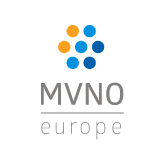Brussels, 22 February 2024 – MVNO Europe is concerned about the competitive implications of the European Commission’s plans to foster spectrum harmonization and consolidation.
MVNO Europe welcomes the European Commission’s White Paper on “How to master Europe’s digital infrastructure needs?” and its intention to complete the European Single market for telecommunications. We however have some concerns with regards to the potential consequences of some of the paper’s suggestions on competition in the EU telecom market.
Any future considerations and plans related to telecom regulation in Europe should be aligned with promoting competition to the benefit of EU citizens and businesses. In this respect, MVNO Europe points to cases where wholesale MVNO access was given as a commitment for 4 to 3 MNO mergers and which proved to be efficient way to ensure a good level of competition to the benefits of end-users. One example is Austria.
The same remark applies to the European Commission’s proposals to strengthen EU-level coordination of auction timing and authorisation for new spectrum bands. Any measure inducing spectrum harmonisation should not reinforce the dominant position of national market players In this respect, MVNO Europe emphasises the need for the Commission to ensure that no more delays are experienced when it comes to wholesale access to new network technologies. This has been the case with transitions from 3G to 4G and it remains a live issue in the transition from 4G to 5G. Such delays have been detrimental to MVNOs, competition and ultimately end-users, including in the IoT sector which the European Commission seeks to foster. It is only normal that players like MVNOs who pay for every MegaByte, SMS and minute they use on mobile networks – and in this sense contribute to investment in the EU infrastructure and competitiveness – get fair access to these latest technologies.
Barriers to the supply of fit-for-purpose wholesale access to 5G (and in future 6G) and wholesale roaming need to be overcome (if needed, steered by spectrum assignment decisions, ex-ante regulation and/or dispute-resolution proceedings, and improvements to the EU Roaming Regulation), to stimulate innovation and competition, for traditional services and for Internet of Things (IoT) solutions.

